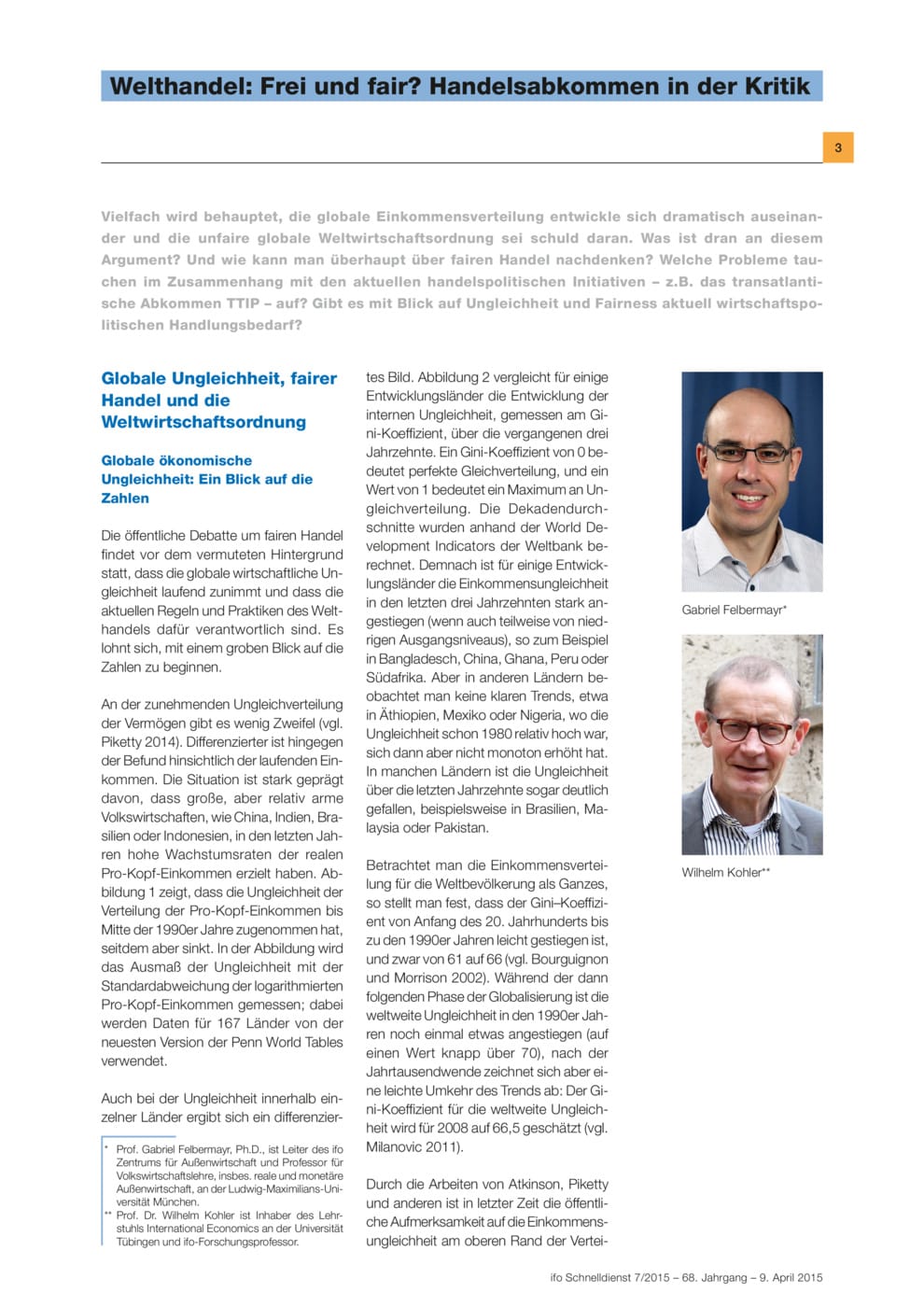World Trade: Free and Fair? A Critical Analysis of Trade Agreements
ifo Institut, München, 2015
ifo Schnelldienst, 2015, 68, Nr. 07, 03-30

It is often argued that growing divergences in global income distribution are the product of an unfair global economic order. Do “fair trade” and “free trade” represent a contradiction in terms? Gabriel Felbermayr, Ifo Institute, and Wilhelm Kohler, University of Tübingen, provide an introduction to this topic. For Christoph Scherrer, University of Kassel, modern trade agreements tend to offer “protection for the strong, not the weak”. The new agreements protect financially sound companies that are strong in research and provide security for investors with significant funds at their disposal. In his view, a sensible alternative option is “to gear the guidelines for world trade towards development policy, social and ecological principles”. Richard Senti, ETH Zurich, points out that regional integration agreements have given rise to a sort of secondary world trade order that conflicts with the WTO. Regional free trade areas have gained a great deal of autonomy in recent years, making it difficult for them to fit into the world trade order. Johannes Wallacher, Hochschule für Philosophie München, sees both opportunities and risks. International trade relations offer opportunities for greater prosperity, but also induce a greater pressure to adjust. Peter-Christian Müller-Graff, University of Heidelberg, sees no future for traditional free trade agreements that only address market access. Such agreements need to cover “prosperity generated by protection standards and adequate and reliable legal protection mechanisms for market players and, if applicable, mechanisms to cover cases of seriously asymmetrical developments”. For trade in products involves more than just foreign trade policy alone, and has long raised issues of health, social, consumer and environmental policy. According to Heribert Dieter, Stiftung Wissenschaft und Politik, Berlin, trade policy has been massively repoliticised in recent years. From a trade policy point of view, this is a highly unfavourable development. The ideal economic solution, namely multilateral regulation and the liberalisation of trade, is increasingly being scorned and rejected by politicians. Stephan Leibfried, University of Bremen, advises economists to look beyond their methodological and content-based area of expertise, since power, dominance and political legitimacy are becoming key issues in addition to distribution.